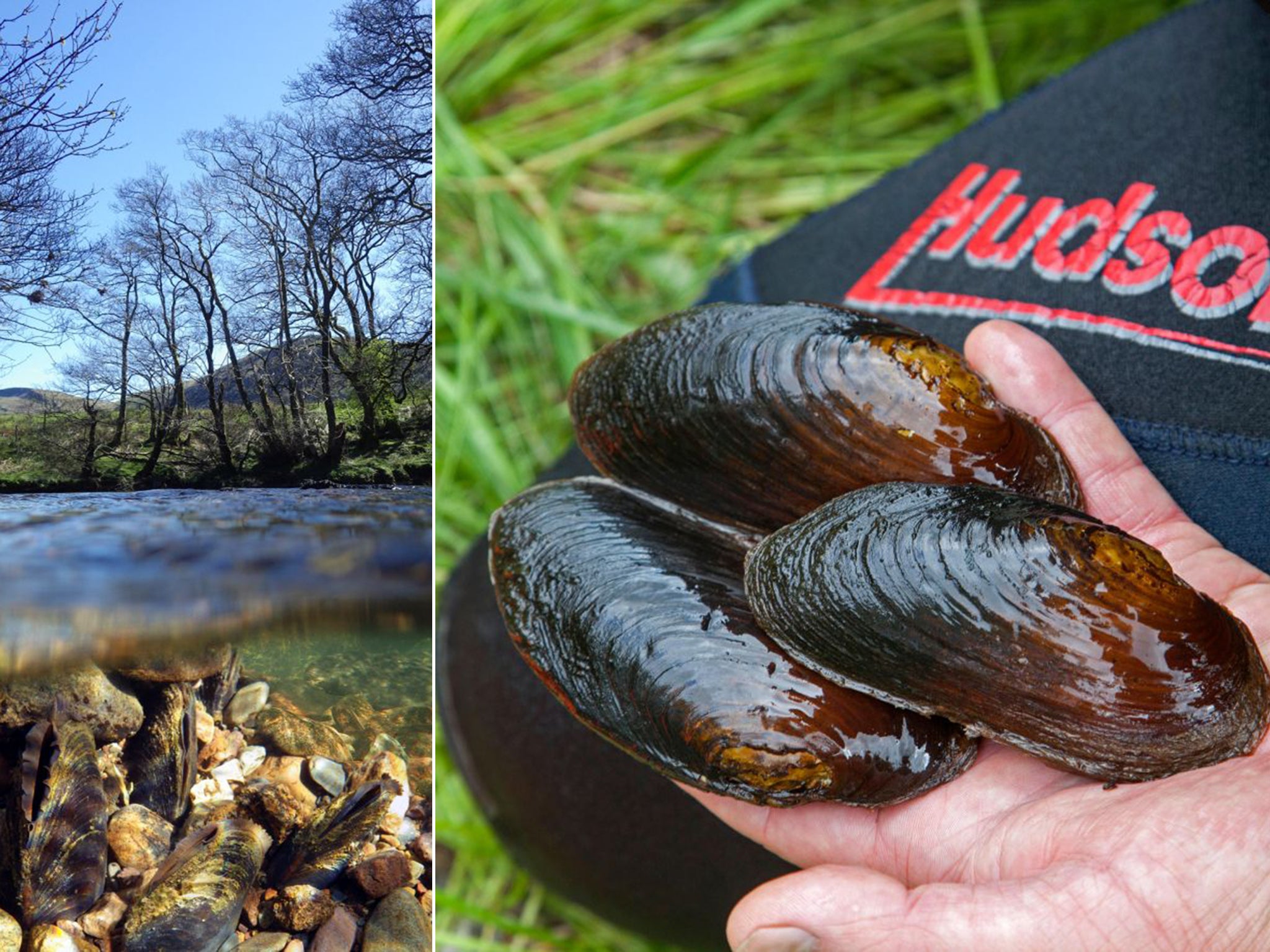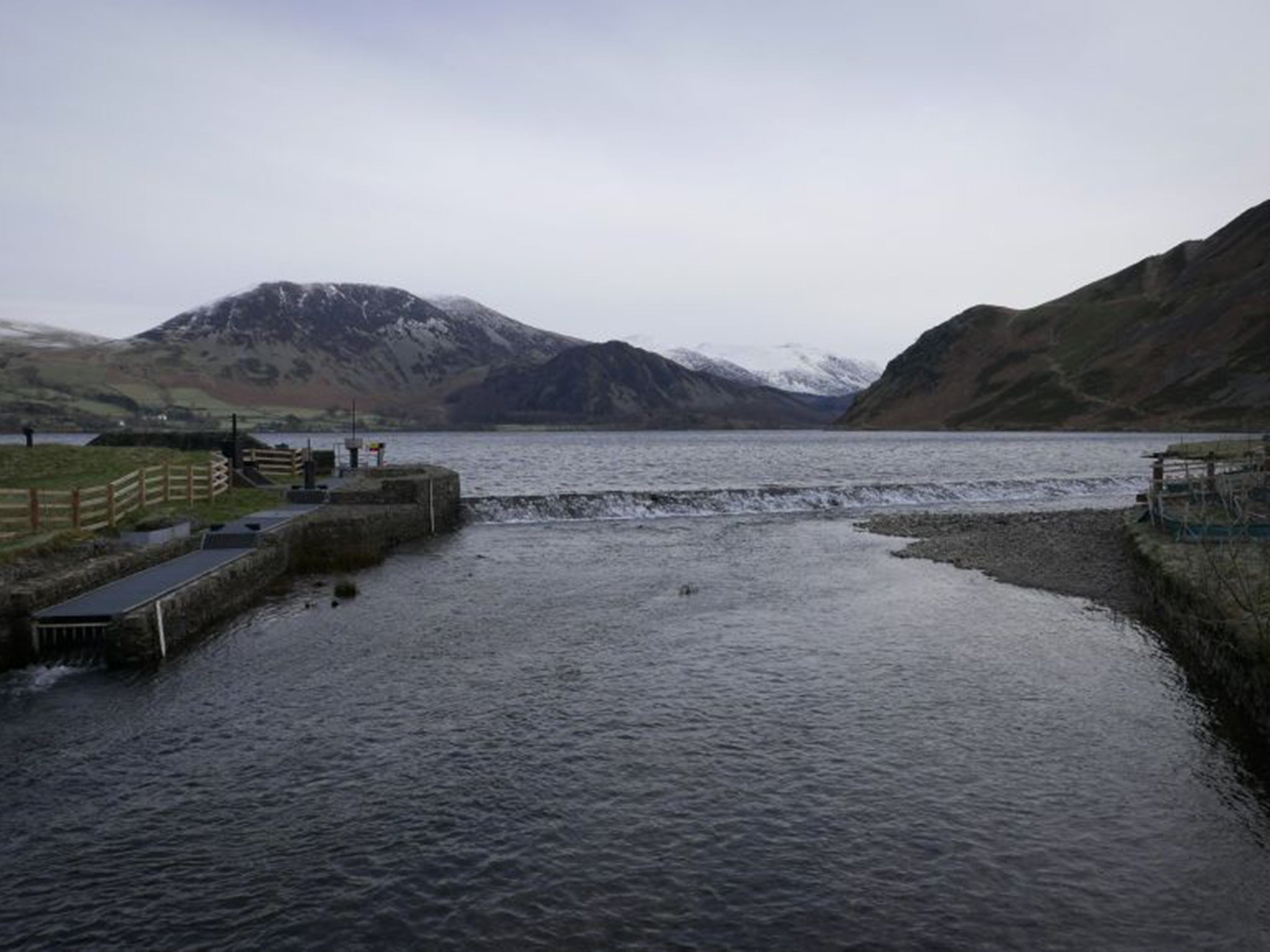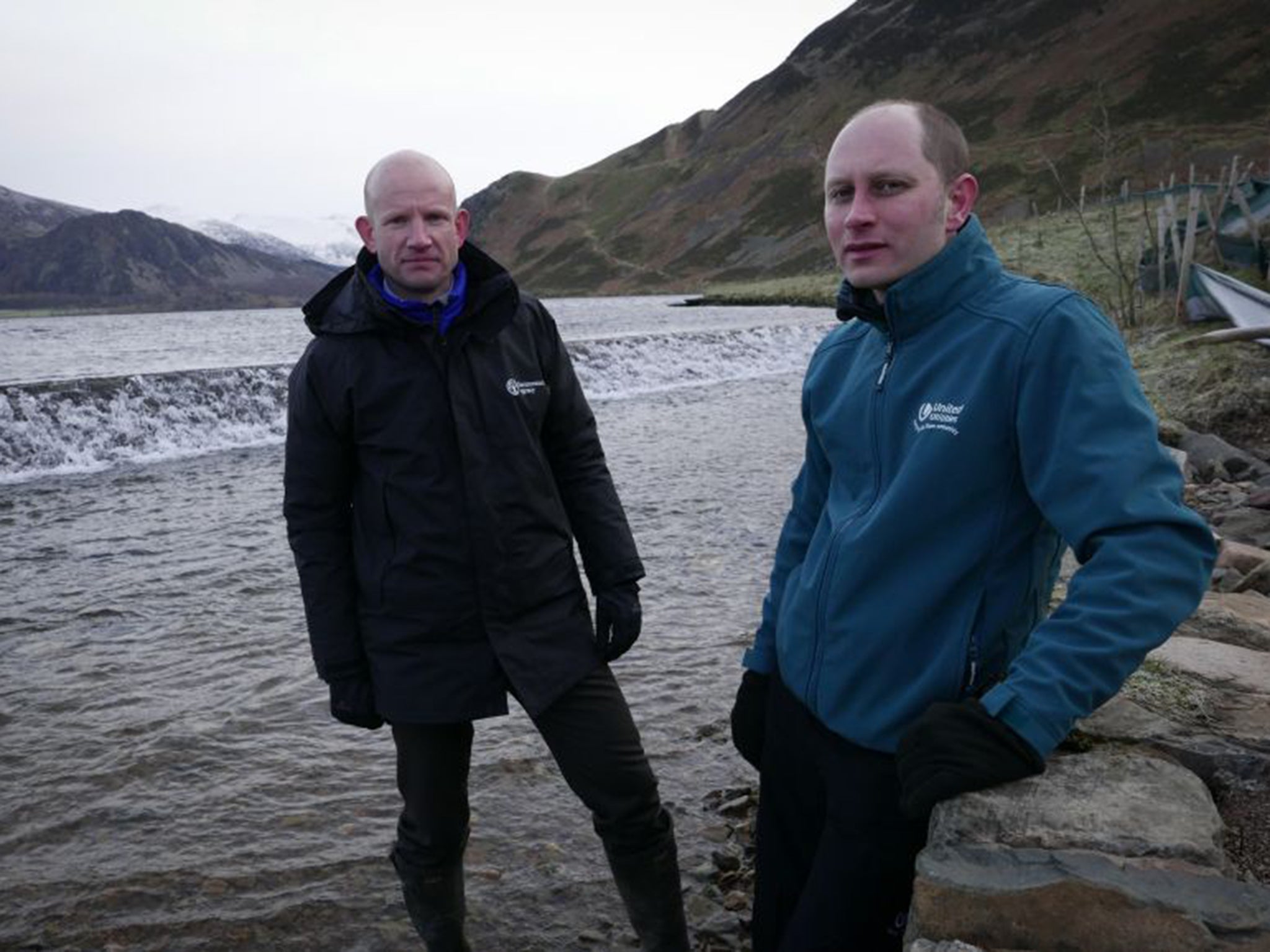Growing mussels: Precious freshwater shellfish are thriving in a unique green project
The river Ehen is home to England's last viable population of the bivalve, but numbers have plummeted since the last century. Now, a unique collaboration is allowing them to thrive again

The freshwater pearl mussels of the Lake District have a perilous start to life. Every summer each of the half a million adult mussels on the river Ehen in the wilds of Ennerdale in Cumbria release up to four million larvae. Most of these simply wash out to sea and oblivion, but a few will latch on to the gills of the passing Atlantic salmon or Arctic char who visit the river to spawn.
The tiny mussels, less than a tenth of a millimetre long, will harmlessly “live on the gill” of the fish for up to 18 months as it heads out into the depths of the Atlantic. When the fish finally makes it back to spawn in the river, the mussels drop off to burrow into the clean, sandy and gravelly riverbed and go on, potentially, to live for 100 years. And, like the oyster, freshwater mussels occasionally produce a pearl. Or at least that’s what should happen. A century of habitat degradation, over extraction of water and even poaching, have made its life even more perilous.

Ennerdale is home to England’s last viable population of the bivalve, but numbers have plummeted from up to three million in the 20th century to 500,000. And beyond Cumbria the species has only a few viable locations in Scotland and one in Wales.
Now though, a unique collaboration between local conservationists, the Environment Agency and the local water company is trying to return the river to its former glory, allowing the mussels to thrive again.
Walking along the banks of the river, Diane O’Leary, from the Pearls in Peril project run by West Cumbria Rivers Trust, is quick to point out that few freshwater mussels do go on to produce pearls, which are darker and of much less value than oysters’, and says they are too chewy to eat, too.
“The water here is clean compared to the Thames, but there are issues with faulty septic tanks, run-off of soil from over-grazed banks, and over-extraction of water at Ennerdale Water, at [the Ehen’s] source. Freshwater mussels need to ... burrow into clean gravel or sand to survive and the problem here is there just isn’t enough of that good-quality riverbed.”

The Pearls in Peril project is working with farmers to stop run-off of soil and fertiliser, putting up fences to stop livestock polluting the river and using willow branches in a “green engineering” measure to stop riverbank erosion. However, the large-scale engineering work is being done by United Utilities, which has been instructed by the Environment Agency to stop extracting water from Ennerdale by 2020.
Ennerdale is currently the source of water for 80,000 people in west Cumbria, but United Utilities plans a 13-mile pipeline to link the area to supplies in the rest of the country, has dug three giant boreholes and is restoring Ben Gill stream which runs into the water from where the river Ehen flows.
Jeremy Westgarth, the head of the Environment Agency in the area, said: “This is an area that by acting we can have a major impact on several critically important species.”
There is already visible progress, adds Ms O’Leary, but: “Mussels live up to 100 years, so it could be 20 years before we know if this project has really worked.”
Join our commenting forum
Join thought-provoking conversations, follow other Independent readers and see their replies
Comments
Bookmark popover
Removed from bookmarks